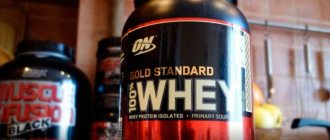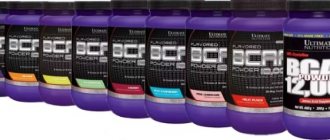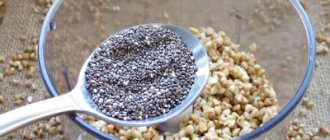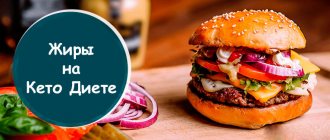In modern bodybuilding, whey protein is rightfully considered the leader among proteins, and there is good reason for this.
However, there was a time when whey protein did not exist: it appeared as a separate sports nutrition product several decades ago.
In the days of Arnold Schwarzenegger and Frank Zane, the main sources of protein in bodybuilding were dairy products, which were drunk by the gallon, and eggs, which were eaten by the dozen.
At that time, egg protein was considered the gold standard of protein and despite the fact that today its popularity has declined and it has given way to whey, it has everything to be a worthy alternative to the latter...
Main thoughts:
The amino acid profile of egg protein looks no less attractive than whey protein: it contains several times more of the amino acids arginine, valine, methionine and cysteine, which are important in bodybuilding
The rate of absorption of egg protein is average between whey protein and casein: approximately 1.5-3 hours
Egg protein has the highest absorption rate along with whey protein, casein and soy protein
From a nutritional point of view, egg protein is “more dietary” than whey: its calorie content is lower, since it contains fewer carbohydrates and fats, and it is completely free of cholesterol, while 100 g of whey contains approximately half the daily value
Egg protein has some advantages over whey protein in terms of amino acid composition and fat, carbohydrate and cholesterol content, however, some scientific studies show its low effectiveness in building muscle mass
Scientists Review Egg Protein: Whole eggs are 40% more effective in post-workout muscle protein synthesis than egg protein...
Egg protein is recommended to be consumed after training or between meals, as well as in combination with whey and casein.
In this article we will talk about the pros and cons of egg protein, find out whether egg protein or whey is better, and what scientists say about the effectiveness of egg protein in comparison with regular eggs.
Pros and cons of egg white
Main advantages:
- It has a rich amino acid composition compared to other supplements.
- Slowly absorbed, providing a constant supply of amino acids, preventing the destruction of muscle tissue.
- Does not contain lactose or fat.
- Mixes easily in water and milk.
- Suitable for taking at night due to long absorption.
Flaws:
- It often causes side effects such as constipation, so additional consumption with fiber is necessary if the manufacturer does not include it in the product.
- The long breakdown of proteins does not allow the product to be consumed solo after training or after sleep to urgently prevent catabolism, compared to BCAAs or whey protein.
- Not suitable for dry athletes.
High Protein Foods
There is a misconception: a lot of protein is found in boiled sausage, mayonnaise, yogurt, “cottage cheese” and other foods harmful to the body. Yes, he really is in it. However, not in the quantity and quality that can be obtained from natural protein products of animal and plant origin. To improve your health and quickly build muscle mass, you need to eat healthy foods that are rich not only in protein, but also in vitamins and minerals.
Fortunately, the list of healthy protein products is varied. From them you can choose those that suit you best both in composition and taste.
List of animal protein products
Meat, fish, eggs, cottage cheese, cheese - these are the top 5 foods for gaining muscle mass. Remember them and try to consume them in moderation for breakfast, lunch and dinner.
Below is a list of animal products and their protein content:
| Products | Proteins, g/100 g (product) |
| Meat, offal, sausages | |
| Beef 1st category | 18,6 |
| Beef 2nd category | 20 |
| Lamb (1st category) | 15,6 |
| Lamb (2nd category) | 19,8 |
| Pork (meat) | 14,3 |
| Pork (fat) | 11,7 |
| Veal | 19,7 |
| horsemeat | 19,5 |
| Rabbit meat | 21,1 |
| Beef liver, kidneys | 17,9 |
| Beef heart | 16 |
| Light beef | 15,2 |
| Beef tongue | 14 |
| Pork liver | 19 |
| Pork kidneys | 13 |
| Pork heart, lung | 15 |
| Pork tongue | 14 |
| Milk sausages | 11,4 |
| Doctor's sausage | 12,8 |
| Amateur sausage | 12,2 |
| Semi-smoked sausage | 16,5 |
| Ham | 22,6 |
| Raw smoked loin | 10,5 |
| Beef stew | 16 |
| Stewed pork | 15 |
| Sausage mince | 15,2 |
| Liver pate | 11 |
| Bird, eggs | |
| Chickens (1st category) | 18,2 |
| Chickens (2nd category) | 20,8 |
| Chicken egg | 12,7 |
| Goose | 15,2 |
| Turkey | 19,5 |
| Duck | 15,8 |
| Fish, seafood | |
| Chum salmon | 22 |
| Pink salmon | 21 |
| Herring | 19 |
| Burbot | 18,8 |
| Horse mackerel | 18,5 |
| Mackerel | 18 |
| Sea bass | 18,3 |
| Crucian carp, pike, river perch | 17,7 |
| Bream | 17,1 |
| Hake | 16,7 |
| Navaga | 16,1 |
| Flounder | 16,1 |
| Carp | 16 |
| Cod | 16 |
| Pollock | 15,9 |
| capelin | 13,4 |
| Squid | 18 |
| Shrimp | 18 |
| Crab | 16 |
| Chum salmon caviar (grainy) | 31,6 |
| Sturgeon caviar (grainy) | 28,9 |
| Pollock caviar | 28,4 |
| Cod liver | 4,2 |
| Dairy | |
| Cow's milk (pasteurized) | 2,8 |
| Protein milk | 4,3 |
| Condensed milk (with sugar) | 7,2 |
| Powdered milk | 25,6 |
| Kefir (fat) | 2,8 |
| Kefir (low-fat) | 3 |
| Curdled milk | 2,8 |
| Ryazhenka | 3 |
| Yogurt (1.5%) | 5 |
| Sour cream (20%) | 2,8 |
| Cream (10%) | 3 |
| Cream (20%) | 2,8 |
| Cream (dry) | 23 |
| Cottage cheese (fat) | 14 |
| Cottage cheese (bold) | 16,7 |
| Cottage cheese (low fat) | 18 |
| Cheeses and curd masses | 7,1 |
| Cheese (Dutch) | 26,8 |
| Cheese (Poshekhonsky) | 26 |
| Cheese (Swiss) | 24,9 |
| Cheese (Russian) | 23,4 |
| Cheese (processed) | 24 |
| Brynza | 17,9 |
| Butter | 0,6 |
| Ice cream | 3,3 |
| Margarine | 0,3 |
List of plant-based protein products
Legumes, nuts, spinach, champignons - tasty and healthy plant products are also rich in protein. Eat them to add variety to your protein diet. A complete list of plant-based products indicating the amount of protein they contain is presented in the table below:
| Products | Proteins, g/100 g (product) |
| Legumes, nuts, seeds | |
| Soybeans | 34,9 |
| Lentils | 24,8 |
| Peas | 23 |
| Beans | 22,3 |
| Pumpkin seeds | 30,2 |
| Peanut | 26,3 |
| Sunflower seeds | 20,8 |
| Almond | 18,6 |
| Cashew | 18,2 |
| Pistachios | 20,3 |
| Hazelnut | 16,1 |
| Brazilian nut | 14,3 |
| Walnut | 13,6 |
| Cereals, bakery and pasta products | |
| Hercules | 13,1 |
| Poltava groats | 12,7 |
| Buckwheat | 12,6 |
| Millet | 12,1 |
| Oat groats | 11,9 |
| Semolina | 11,3 |
| Pearl barley | 10,4 |
| Barley groats | 9,5 |
| Barley grits | 9,3 |
| Corn grits | 8,3 |
| Rice cereal | 7 |
| Wheat bread (from 1st grade flour) | 7,6 |
| Wheat bread (from 2nd grade flour) | 8,4 |
| Rye bread | 5,5 |
| Pasta (egg) | 11,3 |
| Pasta (1st grade) | 10,7 |
| Pasta (highest grade) | 10,4 |
| Vegetables, mushrooms, dried fruits | |
| Potato | 2 |
| Beet | 1,5-2,5 |
| Brussels sprouts | 4,8 |
| Kohlrabi cabbage | 2,8 |
| Cauliflower | 2,5 |
| White cabbage | 1,8 |
| Garlic | 6,5 |
| Spinach | 2,9 |
| Radish | 1,9 |
| Turnip | 1,5 |
| Carrot | 1,4 |
| Pepper (red sweet) | 1,3 |
| Pepper (green sweet) | 1,3 |
| Eggplant | 1,2 |
| Mushrooms (white) | 3,7 |
| Champignon | 4,3 |
| Dried apricots | 5,3 |
| Dates | 2,5 |
| Prunes | 2,3 |
| Raisin | 1,9 |
How animal and plant proteins are digested
Remember: on average, the human body can absorb 30 g of protein in one meal.
The degree of absorption depends on various factors:
- origin of protein (animal and vegetable);
- food processing method;
- general condition of the body.
Scientists have found that animal proteins are absorbed 1.5 times better than plant proteins: animal proteins by 70%, plant proteins by only 35–40%.
Digestibility of protein in foods:
- chicken eggs - 92–100%;
- fermented milk - 90%;
- fresh milk - 83%;
- beef - 76%;
- cottage cheese - 75%;
- oatmeal - 66%;
- products made from wheat flour - 52%.
To make protein products easier to digest, they need to be steamed and consumed together with fruits and vegetables (non-starchy). When frying, they are enriched with fats and increase calorie content.
For optimal digestibility, take carbohydrate dishes with a small addition of protein for breakfast - oatmeal with milk, for lunch - poultry or beef, for dinner - lean fish (pollock, carp) or seafood.
Pros and Cons of Eating High Protein Foods to Gain Muscle
Pros:
- naturally obtained and grown products;
- variety of products;
- the ability to choose a protein product to taste.
Minuses:
- difficulties in calculating the exact amount of protein in dishes;
- inability to take pure protein (all products with maximum amounts of protein contain fats and carbohydrates);
- direct dependence of the properties of a protein product on its storage conditions.
Which protein is better - whey or egg?
These two products should not be compared. Athletes need each equally, and as is usually the case, the complex contains several products that differ in action. If whey is absorbed faster and is great for closing the protein-carbohydrate window after workouts, then egg albumin can be compared to casein protein in action. The last two types are suitable for consumption at night.
Side effects
Individual protein intolerance or an allergic reaction, also due to a fairly high concentration of sulfur, can cause upset in the gastrointestinal area in the form of diarrhea, bloating or increased gas production.
I’ll tell you right away - the gases will be foul-smelling, so be careful not to fall into an awkward situation ;). But don’t worry, this doesn’t happen to everyone and in some cases.
If you experience these symptoms, go to your doctor and get advice about taking egg whites, and perhaps you can replace them with others. Biological value of egg protein = 90, and absorption rate = 9g/hour.
Top 5 Best Egg Proteins
Optimum Nutrition - Gold Standard 100% EGG
The protein powder of the world-famous brand includes the entire spectrum of essential and essential amino acids. Eating one serving replaces eating seven egg whites. The cost in stores varies from 1790 – 3030 rubles per 908 grams.
Dymatize Nutrition - Elite Egg Protein
One 32.5 gram serving contains 110 calories, 24 g protein, 5 mg cholesterol, sodium, potassium, 3 g carbohydrates. The product is completely fat-free and is suitable for both gradual weight loss and weight gain. A 910 gram package costs approximately 2,750 rubles.
Sci-Fit - 100% Egg Protein
The product contains 100% egg albumin, which can lower blood cholesterol levels and reduce the risk of cardiovascular diseases. 100% Egg Protein contains no fat. A 28 gram serving contains: 24 g protein, 2 g carbohydrates, magnesium, phosphorus, sodium potassium, 5 mg cholesterol. A 2.27 kg can costs about 3,500 rubles.
Pureprotein – Egg Protein Base Line
The domestic manufacturer did not leave athletes without high-quality egg protein, devoid of lactose, containing fiber, wheat germ, a minimum of fat and cholesterol. As well as all essential amino acids, it contains 21 grams of protein per 35 g serving. The cost for 600 g is 650-790 rubles, and for 1000 g - about 1500 rubles.
Scitec Nutrition Egg Pro (930 g)
One 30 g serving contains 95 calories, 1.8 g carbohydrates, 22 g protein, salt, sugar, 50 mg taurine. The product is completely fat free. The approximate cost for 930 grams is 1940 rubles.
Does it help with weight loss?
Due to the peculiarities of metabolism, the effectiveness of egg protein for weight loss is extremely low. Why is that? Everything again follows from the profiles described above. A low absorption rate, although it gives the best result in long-term anti-catabolism, also reduces fat burning in general.
A complete amino acid profile is both an advantage and a disadvantage. The main lipase enzymes are created from it, that is, it converts almost all incoming fat into cholesterol. As a result of taking this protein, you partially relieve hunger for a longer time. However, all this will lead to a significant slowdown in metabolism. And it is this factor that leads to the fact that egg protein is almost completely useless as the main means for rapid weight loss.
If we consider not weight loss, but careful long-term drying over 4-6 months, then the situation here is somewhat different. Unlike whey, taking egg protein on a regular basis will not stress the gastrointestinal tract and will not interfere with the natural stimulation of protein synthesis from amino acids. Therefore, with gentle weight movements, egg white will help you enter into microperiodization, which is especially important when you want to gain weight and lose weight at the same time.
How to take egg protein
To increase muscle mass, unfortunately, egg protein should not be the only protein; it should be supplemented with amino acid complexes or fast-acting whey protein.
- Therefore, after training, egg protein can be consumed after taking BCAAs after 20 minutes.
- The second portion should be taken before bed.
On rest days:
- one serving is also taken before bedtime;
- and the second at any time for prolonged release of protein.
For weight loss, egg white is not the most desirable product , because the complete absence of fat does not cover the presence of carbohydrates. Thus, it is not advisable to consume it before bed, but before and after training, if the athlete is not cutting, it can be left as an additional source of protein.
Egg vs Whey
Which protein is better - whey or egg? There is no clear answer. Each protein has its own advantages and disadvantages. You will get the best results by combining both types of protein shakes.
| Egg white | Whey protein |
| More complete amino acid profile | Best absorption rate |
| Prolonged action | Less stress on the gastrointestinal tract |
| Lactose free | No constipation |
| Helps nourish the body throughout the day | The best solution for closing the protein window |
| High price | Requires amino acid profile supplementation with casein |
But if the question is straightforward (you have to choose only one type of protein), then it’s worth digging deeper.
First of all, when choosing, take into account:
- quality of basic nutrition;
- load intensity;
- presence of egg white in normal diet;
- frequency of meals;
- main task.
Whey protein is much better for extreme use regimens - be it cutting with the use of salbutamol and clenbuterol, or, conversely, extreme mass gain using doping. The rate of absorption of whey is comparable to the rate of absorption of BCAA, which allows you to almost immediately stop catabolic processes, while causing a powerful anabolic influx, albeit short-term.
Rapid absorption speeds up metabolism, therefore, it is suitable for endomorphs, for whom the speed of metabolic processes is much more important than all other factors.
What can egg whites do in this regard? The main disadvantage is that it is impossible for them to close protein windows, which almost immediately eliminates it from the main type of raw material for athletes who prefer high-quality filling of their own muscles. However, unlike whey, it has a broader amino acid profile. In addition, egg white has a prolonged effect, and therefore, like casein, it can nourish the body for several hours.
Conclusion: whey protein is preferable as the main protein, while egg white is an excellent substitute for casein - it surpasses it in quality and overall characteristics.











